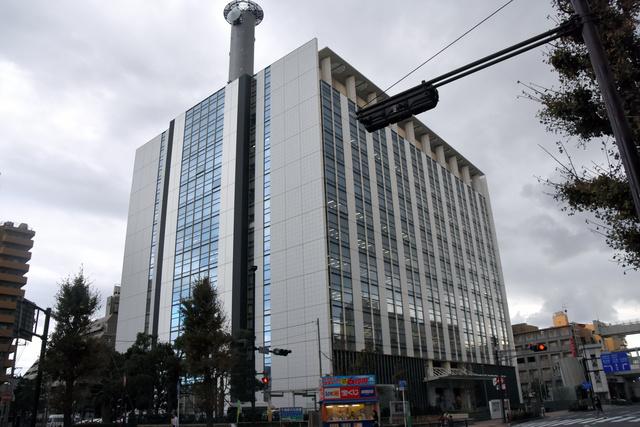MIT TECH REVIEW: Drone, number moni...
15
09
MIT TECH REVIEW: Drone, number monitoring — inside the high -tech investigation team spreading in the US police organization
At the time of 2007, John Grainer, the director of the police headquarters in Ogden, Utah, heard of the latest data hubs called the New York Police "RTCC: REAL TIME CRIME CENTER".That was at the conference held in New Orleans.A large amount of information indicated by the red, green marks, dotted lines, and small yellow icons was displayed on a map of New York City.In addition to information such as murder, shooting case, and closed, we were able to confirm the route of airplanes landing at Lagardia Airport and schedules for container ships arriving at the Hudson River mouth.
In the early 1990s, the New York Police introduced a system called compstat, which aimed at classification of criminal data, ahead of the country.Since then, the system has been widely used in large -scale police organizations nationwide.The RTCC aimed to take advantage of the system in the instructions of the system in which the system was used to use police radio at the time of the incident.
The biggest challenge in the head of Grainer Director, who returned to Ogden, with a population of 82,702, was the car theft that had occurred for many years.At present, a police analyst in the police records a stolen address on a paper map, or manifests the average time until a similar crime occurs in a specific area, and finds similarities.I was doing.At that time, Ogden was introducing an automatic license plate reading device using federal subsidies, but there was no way to integrate the obtained image record and other departments.It was clear that the data at hand could be used more effectively.
"Ogden City is different from New York City, but with the appropriate software can use a system like New York City, which is smaller," said Grainor. So he quit the police and called a former colleague working at Esri, a major map production company, and asked what kind of information could be described on the map. The answer was that what could be filled in the spreadsheet. For example, the address history of parole and parole classified in past convicted history, such as drugs, robbery, and weapons, the stolen location of the car, the location of the car stealing the car in half the healing car, the thief that steals the car is thrown away near home. And so on. You can see the route that patrol cars and fire trucks are moving throughout the city, record the location information of mobile phones on a map, and identify the suspects where they are before and after the crime. I understood.
As of 2021, it would be easier to ask for something that could not be listed on the map.Just as Google and social media have come to see the diaries and drawers of the people who are worried, today's law execution agencies are powerful in data processing and data binding.You can now access new engines.However, it is hard to say that Ogden is at the tip of technology.Police in large cities have already used face recognition to identify the suspect (sometimes misunderstood), and use a prediction investigation that indicates the potential criminal act effectively to determine the patrol route.I'm doing it.
"Such a method is not incorporated in Ogden City."Eric Young, who was appointed General Manager of the Ogden Police in January 2021, said."We don't use artificial intelligence (AI) techniques for any kind."
In 2007, the city council rejected the first RTCC -established budget proposed by Grainer Director. However, the mayor accepted the promotion of the RTCC project within the existing police budget. Glainer headed to Esri and flew to Red Lands, California, where the Esuri headquarters is located. Then, with Esri's co -founder and billionaire Jackdenjamond, "Starting a little friendly relationship", a plan to fly about 9 -meter airships equipped with a camera over the city of Oguden and monitor in real time in an emergency. announced. "In this case, I was beaten by Jay Leno (a famous comedian)," said Grainer Director, and the airship plan was eventually stopped. However, Oguden has already used the ARC GIS (ARCGIS), a geographic information system (GIS) platform, which is the main product of Esri, for planning and public works, and Esri is free of RTCC's test site. I offered to build.
Police technology expansion follows a similar pattern in the United States. In other words, it is promoted by the police and vendors, not from dialogue between the police and the citizens that the police should do. According to the Electronic Frontier Foundation, which tracks the spread of surveillance technology in local law executives, RTCC, which is located in a small city like Westwego, Louisiana, which is less than 10,000 population Currently reaches 85 locations. I went to Ogden to get the answer of Grainer Headquarters for the question, "What are you going to do with this new tool (RTCC), which may touch the constitution?" It takes time for federal law and state law to catch up with products provided by companies such as Esri. If so, who decides where to violate the constitution?

Ogden is a city that grew in the late 19th century. This is the closest branch point where the rail of the continental railway, which has been constructed from the east and west, was finally connected in 1869. At that time, it was called the "West intersection" and is located on the border of two different natural environments, both east and west. On the east side of the city is the Wasatch Mountains, which forms the westernmost edge of the Rocky Mountains, and on the west side is a large -dried glate basein across Lake Great Salt. As the mayor of Ogden's mayor Mike Coldwell likes, the railway has "enriched Ogden at the right time." However, the railway also brought the city to overcome it. In the local area, Al Capone, who visited the city by train in the 1920s, walked around the 25th Avenue and said that it was too rough to stay in the city. Until the time Grainer became the Director of Police in 1995, the main challenges of the 25th Avenue were begging and drunk in front of the public. Even in Ogden, where these minor crimes are a problem, the city's leadership regards RTCCs for serious crimes as the key to downtown revitalization.
RTCC occupies a dim triangular office space on the second floor of a public safety building in Ogden.Many indoor lights are released from two multi -displays installed on each of the six desks lined up along the wall.In addition, there is also a two -row wall -mounted display beyond that.A mobile phone analyzer is placed in the corner of the back, and several drones are piled up in a sturdy storage box.
The seven analysts work on a time shift, checking for police radio communication, and providing information provision from detectives and patrol police officers.David Weros, the boss of the analyst team, is a former detective with a good impression of his beard and cutting gray hair.Director Weros retired from the Ogden Police in 2005, but he has returned to a criminal analyst in less than a year and has been working for a long time.
When I visited in February, Ogden Police Detective Heather West scrolled hundreds of photos taken in a new automatic license plate reading system called Flock Safety. 。 He was looking for a distinctive pickup truck (a gray car equipped with a red campig car roof), which seems to have been used for theft. A week ago, Frock Safety had helped to find five stolen vehicles in three days. Since its introduction in December 2020, analysts have been searching for flock safety more than 800 times. However, when searching for a specific model or colored car with an unknown number, the flock safety program tended to be misunderstood. "For some reason, Flock Safety seems to like Red Mazda 3," said detective West without looking at the screen.
While Fox News flows quietly on the corner television, Mr. Weros introduced the team.Detective West is one of the two detectives in the team, and the team includes four civilian analysts who have worked at the sheriffs of Weaver County and Federal Law execution agencies near Ogden.Like.Former US Finance Officer, an analyst, investigated the registration data for the entire state and was looking for stolen stolen goods in Ogden.
Director Weros has played a video related to the recent murderous investigation to one of the analysts.The investigation reveals the contradictions of Alibi in the actions of the night suspect (a man in a close relationship with women) from the record of the mobile phone obtained by taking the warrant.rice field.The team of Weros is sure to use the video of the city -owned surveillance camera in the water treatment facility in Ogden to "prove that there was a suspect where the mobile phone data indicates."did.
This is one of the fewest achievements in the discussion of how to use technology at RTCC in Oguden.In another example, in 2018, a kidnapped woman stopped police officers, provided the physical characteristics of the suspect, and then used the surveillance camera network owned by the city.I found it.When a police officer arrived at the scene, the suspected man fired, but police officers counterattacked and shot.
If there is an appropriate reason to use human rights infringement technology, the resolution of murder and preventing violence will definitely apply.The fact that it is much more difficult to evaluate is how the use of a surveillance tool has an impact on the relationship between a police officer and the residents who meet in everyday patrols, and how the residents understand the purpose of police activities.It changes.
Let's take a car theft as an example.Ogden's automatic license plate reading network has been successful early on the discovery of theft car.As the Glainer headquarters remembered, car theft increases in winter."Because many people start the engine and return to the house with the key in the ignition to keep the car warm on the private road at home."Even today, the case of "leaving the engine with the engine" accounts for about one -third of the city's theft case in the city.The same is true of a car that was stolen in November 2020, where a young mother was running an engine with a 10 -month -old baby in her back seat.The automatic license plate reader finds this baby within 2 hours ...


![[Kill personally developed games] Top class in app history! Too beautiful water puzzle "a [Q] ua" | Famitsu App for smartphone game information [Kill personally developed games] Top class in app history! Too beautiful water puzzle "a [Q] ua" | Famitsu App for smartphone game information](https://website-google-hk.oss-cn-hongkong.aliyuncs.com/drawing/article_results_7/2022/3/3/66755df992ff2d2b1e1ab43844ef9f88_0.jpeg)





![[Latest in 2021] 10 recommended seat covers for cars!If you want to improve the texture and functionality of the car, choose the mounting type and material. [Latest in 2021] 10 recommended seat covers for cars!If you want to improve the texture and functionality of the car, choose the mounting type and material.](https://website-google-hk.oss-cn-hongkong.aliyuncs.com/drawing/article_results_7/2022/3/3/e5b44589e77141f3a633189165fb6f60_0.jpeg)